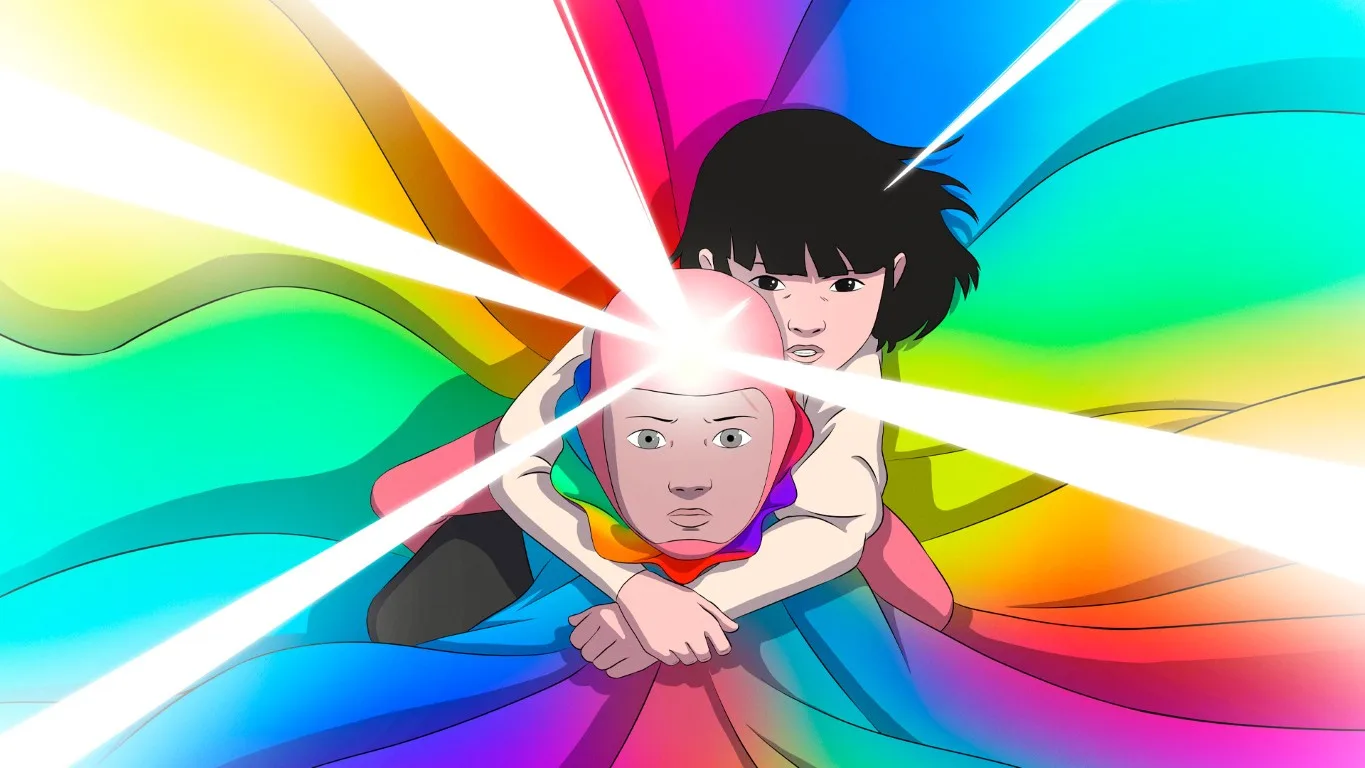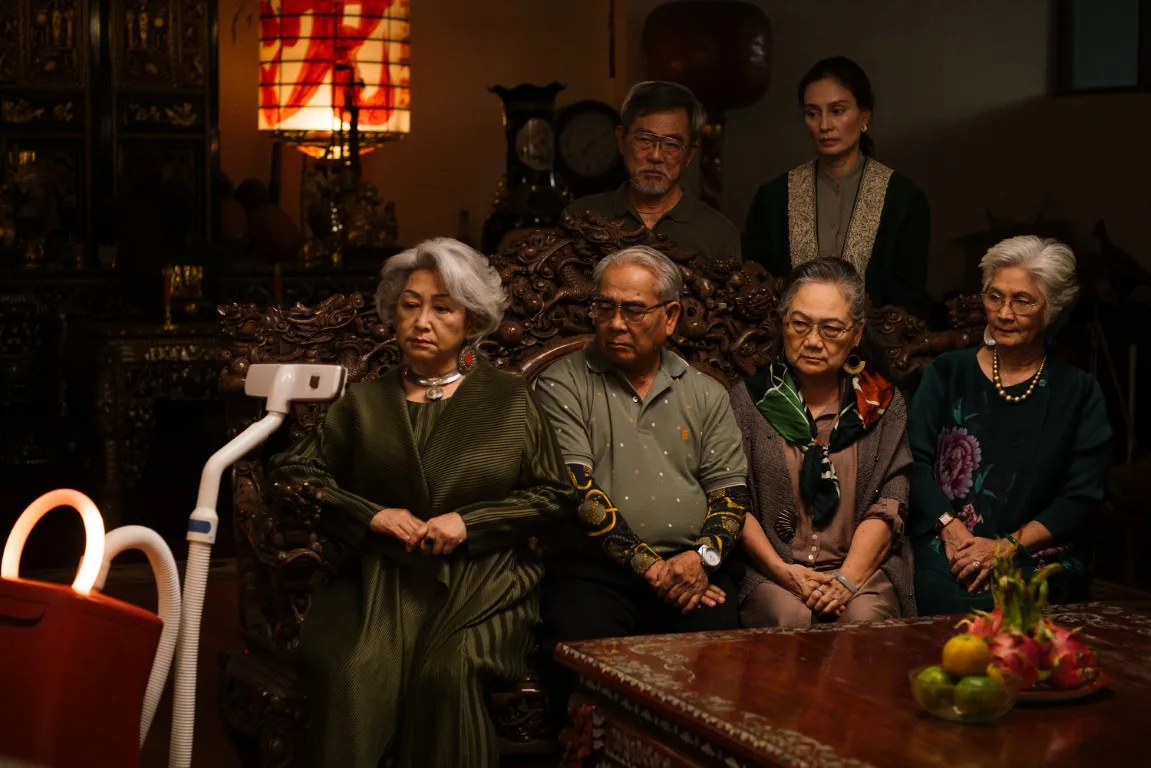Dust, a character explains in “A Useful Ghost,” is supposed to be a necessary evil in Thailand. It’s a sign of progress; houses are being razed to build a mall. Of course, having a lot of dust around means that you need to own a vacuum cleaner, and the self-identified “academic ladyboy” (Wisarut Homhuan) we meet at the beginning of the movie has just purchased a faulty one: For whatever reason, overnight, the vacuum released all the dust it had gathered.
A repairman, Krong (Wanlop Rungkumjad), arrives with impossible speed and offers an alarming diagnosis: The vacuum is possessed. He says that a worker who died at the factory now has a habit of haunting its products. And that’s actually only the first instance of a ghost-controlled appliance in this strange, funny, oddly tender, and politically charged debut feature from the Thai-raised director Ratchapoom Boonbunchachoke.
As Krong explains in the movie’s framing narrative, Madam Suman (Apasiri Nitibhon), who runs the factory, knows about the possession incidents and is still happy to sell the products. We see her try to talk the worker’s ghost out of his “weekly poltergeist stunts.”
But Suman has another ghost to deal with: Her dead daughter-in-law, Nat (Davika Hoorne), has taken possession of a vacuum cleaner of her own. She hopes to continue living beside her husband, March (Wisarut Himmarat). Suman doesn’t like the idea of her son being in a state of conjugal bliss with an appliance.
But after Nat selflessly suctions dust out of a government minister’s eyes, he vouches for her; she is, he says, as gentle as ghosts get. She is perhaps also a wronged party. Ghosts, Vacuum Nat discovers, don’t have spousal privileges when visiting hospitals. (March is sick; she eventually feeds him soup at his bedside through her suction arm.) The law also doesn’t let ghosts update contracts they made when they were alive.
Even this much plot summary only begins to suggest the film’s absurdist lunacy. “A Useful Ghost” keeps its fundamental seriousness on the back burner until the late going. Among the ghosts it’s concerned with are not just the dead worker, named Tok, and Nat, but the Thais killed during the events of May 2010 in Bangkok, where the country’s military fired on anti-government protestors. In the movie’s schema, ghosts are inherently activists. “Their return is an act of protest in itself,” says the academic ladyboy, admiringly.
The film argues for the importance of remembering those events when a plan emerges to erase them from the public’s consciousness, “Eternal Sunshine”-style. Explaining how all of this fits together is too complicated, but suffice it to say that it does, in a film that maintains a considerable degree of structural and formal invention throughout.
Along the way, “A Useful Ghost” finds room for salty-mouthed monks, multiple romances (straight and gay), and a late-breaking horror freakout, just in case anyone wanders in unsuspectingly because of the word “ghost” in the title. But nobody could foresee all the surprises in this disarming and original feature.

The conventional wisdom is that adults are more patient than children, but “Arco,” a French animated film from Ugo Bienvenu—a first-time feature director with a number of shorts and graphic novels to his name—is the sort of cartoon you could easily imagine vegging out with on a Saturday morning at a more innocent age. It’s not bad; it’s just more suited to TV cartoon programming than a berth at a major international film festival. (Cannes is showing it in the “special screenings” section.)
Bienvenu seems to have aspired to a Miyazakian look, but his character renderings—as opposed to his livelier backdrops—don’t reach that level of expressiveness or invention. Parts of the film are notably dark, thematically: The action is principally set in the year 2075, when the 10-year-old Iris (voiced by Margot Ringard Oldra) and her siblings are being raised by a robot named Mikki, apparently a recurring presence in Bienvenu’s work and in some ways the most poignant figure in the film. The children also interact with their dead parents, who appear as holograms.
One day, a boy, Arco, crash-lands in the woods. Wearing an odd cowl (is this a trend in French science fiction? See Fabrice Luchini’s character in Bruno Dumont’s recent film “The Empire”) and a rainbow smock, he is, as we’ve seen in a prologue, from the future.
As Iris and Arco become friends, a crew of conspiracy theorists in pointy glasses (one of them voiced by Louis Garrel) chase them down. Along the way, “Arco” gently shares the wisdom that it’s important to be a good steward for the planet and to read books. (Iris mentions that nobody ever goes to the library anymore.) The film implies that 2075 represents the peak of humanity’s destructive tendencies. By Arco’s era, most of the world is underwater, and he and his family reside in the clouds, so that the ground can have a rest. That doesn’t precisely sound like a happy ending, but it is an intriguing concept in a movie with too few of them.












